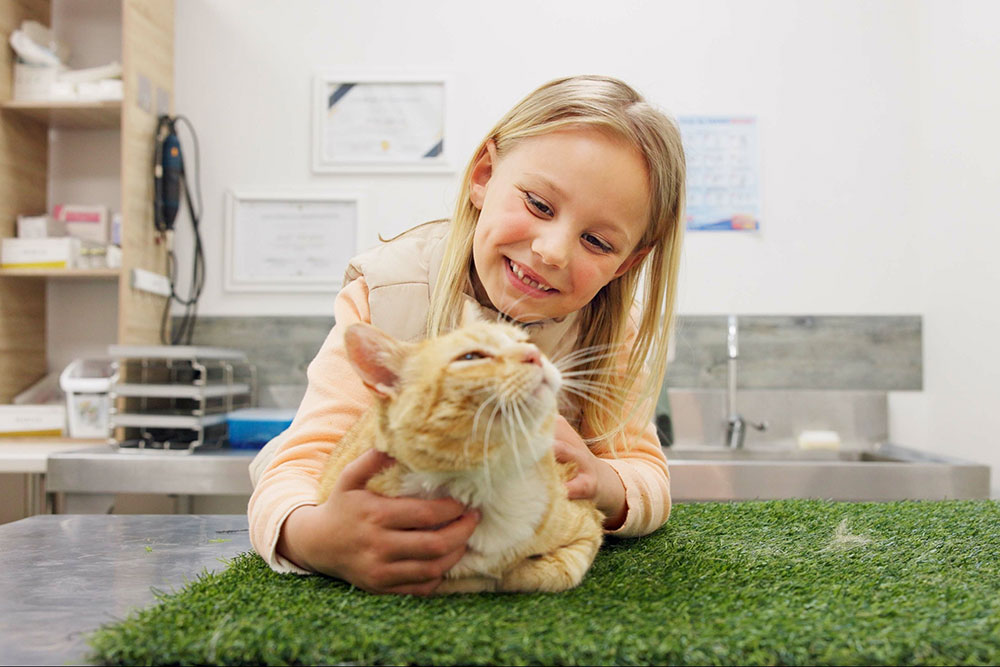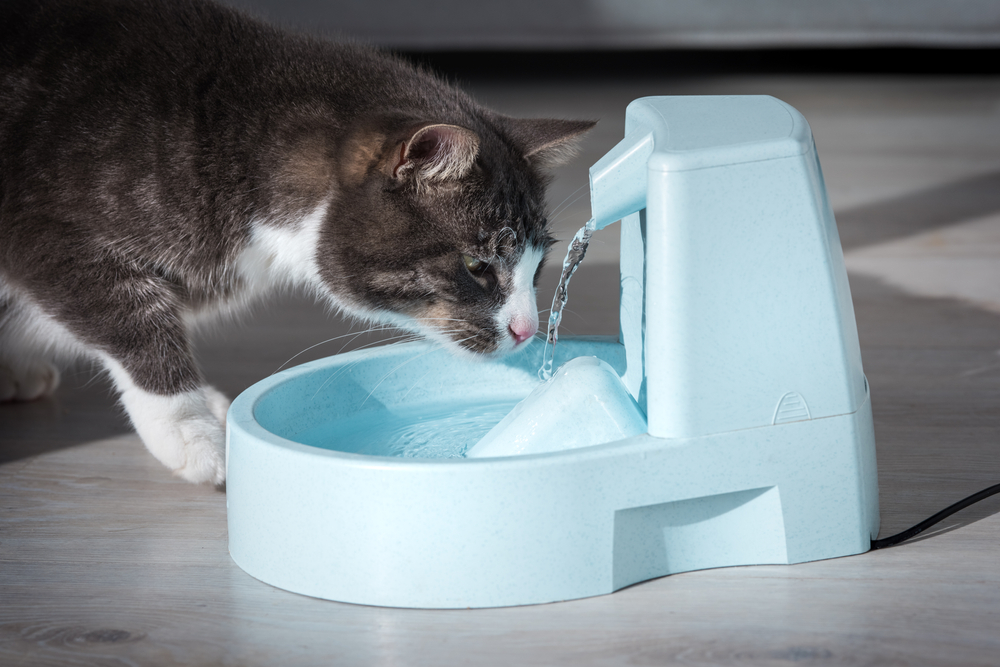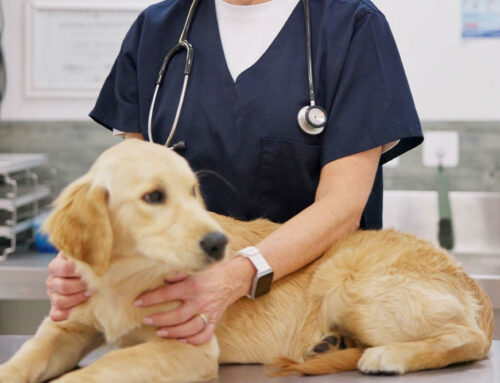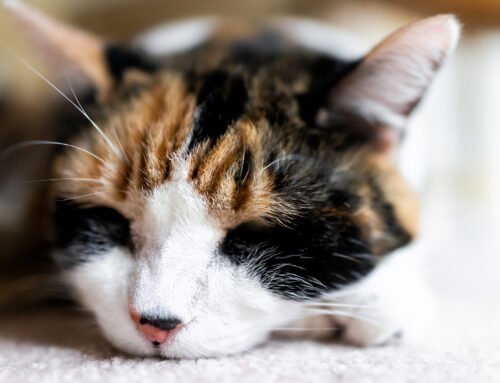Water is one of the most essential nutrients in your pet’s diet—but it’s also one of the most commonly overlooked. Whether you have a playful pup, a quiet senior cat, or a working breed with endless energy, keeping your pet hydrated plays a major role in their overall health.
At Animal Hospital Southwest, we see the effects of dehydration more often than you might expect—especially during hot Texas summers. That’s why we want every pet owner to feel confident spotting early signs of dehydration, knowing when to seek care, and building hydration-friendly routines at home.
Why Pet Hydration Matters
Hydration does far more than keep your pet comfortable. It directly supports:
- Temperature regulation, especially in hot or humid weather
- Healthy digestion and nutrient absorption
- Joint and tissue cushioning
- Toxin elimination through proper kidney and urinary function
- Cognitive and physical energy levels
When a pet becomes dehydrated—even mildly—it puts stress on these vital systems. Dehydration also worsens many chronic conditions, such as kidney disease, diabetes, or hyperthyroidism.
Common Causes of Dehydration
Dehydration can happen for many reasons, including:
- Not drinking enough water, especially in older pets or picky eaters
- Vomiting, diarrhea, or overheating, which increase fluid loss
- Chronic illness, including diabetes, kidney disease, or thyroid conditions
- Environmental heat, a major factor in Texas during spring and summer
- Stress or changes in routine, which may reduce drinking behavior
If your pet has recently experienced digestive upset or increased activity outdoors, monitoring hydration becomes especially important.
How to Spot Dehydration in Pets
Recognizing dehydration early helps prevent more serious complications. Look for:
Mild to moderate signs:
- Tacky or dry gums
- Lethargy or disinterest in play
- Decreased appetite
- Less skin elasticity (try a gentle pinch between the shoulder blades)
Advanced signs:
- Sunken eyes
- Weakness, trembling, or collapse
- Rapid heartbeat or panting when at rest
- Dark, concentrated urine or reduced urination
Cats, in particular, may not show symptoms until they’re severely dehydrated. If something feels “off,” it’s worth checking in.
→ Emergency situation? Let us know. We offer same-day urgent and emergency care.
How We Diagnose and Treat Dehydration
If you visit Animal Hospital Southwest with concerns about dehydration, here’s what to expect:
- Physical exam – We assess hydration status, vital signs, and recent history
- Diagnostic tests – Bloodwork or urinalysis to evaluate kidney function and electrolyte levels
→ Learn about our diagnostic capabilities
Treatment Options
- Mild cases: Encouraging fluid intake, moistening food, or using pet-safe broths
- Moderate to severe cases: Administering IV or subcutaneous fluids to restore balance
- Hospitalization: In cases where close monitoring, electrolyte balancing, and supportive care are required
We also address any underlying causes, whether it’s a GI condition, chronic illness, or environmental trigger.
What Happens If Dehydration Goes Untreated?
Untreated dehydration can lead to:
- Electrolyte imbalances
- Kidney damage
- Urinary tract infections
- Heatstroke or hypovolemic shock
In extreme cases, organ failure can occur. Prompt care makes all the difference.
Hydration Tips for Every Pet Household
Want to help your pet stay well-hydrated year-round? Here are a few practical tips:
- Always offer clean, fresh water—and change it daily
- Use wide, shallow bowls or pet fountains to encourage drinking
- Incorporate moisture-rich foods, especially if your pet eats dry kibble
- Bring portable bowls when on walks or traveling
- Avoid long walks or outdoor play during the hottest parts of the day
- Flavor Water with a splash of tuna juice (water, not oil) or low-sodium chicken broth.
How to Prepare for Your Vet Visit
When visiting us about possible dehydration, bring:
- Notes on water consumption and any changes to urination amount or frequency
- A record of vomiting, diarrhea, or severe panting episodes
- Information on current diet, medications, or supplements
→ Have questions? Contact us here.

Quick FAQs: Hydration at a Glance
How much water should my pet drink per day?
About one ounce of water per pound of body weight. Active pets, nursing animals, or those on dry diets may need more.
Is bottled or filtered water better than tap?
Most tap water is fine. If your area has known contaminants, filtered options may help.
Can I give electrolyte solutions or sports drinks?
Only use vet-approved options. Human electrolyte drinks may contain ingredients that are unsafe for pets.
How do I know when to call the vet?
Any persistent signs of dehydration, like dry gums or lethargy, warrant an exam—especially if symptoms worsen or follow heat exposure.
We’re Here to Help—Every Step of the Way
Hydration is a simple concept with a big impact. At Animal Hospital Southwest, we partner with pet parents in Fort Worth and surrounding areas to protect your pet’s health in every season.
Whether you’re managing a chronic condition, navigating Texas heat, or just want peace of mind, we’re here for you.
Keeping your pet hydrated isn’t just a daily task—it’s a lifelong commitment to their comfort, longevity, and quality of life.







Leave A Comment